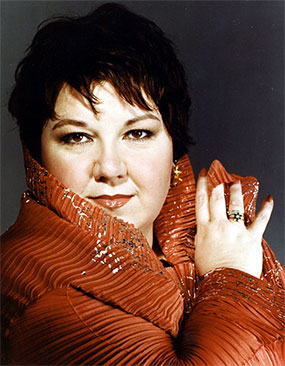by J.D. Goddard
On Saturday
The orchestra opened with a crisp and efficient “teaser,” Beethoven’s Egmont Overture, which immediately set the tone for the evening’s fare.
The Egmont Overture was a commissioned work intended as incidental music for Goethe’s play of the same name. The Overture has survived as an independent concert piece and is now mostly performed without the rest of the incidental music.
The slow, dramatic introduction is marked by heavy chords and a predominant theme from the oboe which leads to a descending scale motif at the end. As the tempo speeds up into an Allegro, Beethoven energizes the music with his characteristic use of timpani and brass. The final cadence moves from darkness to light with a triumphant coda in F major. Woods and the orchestra aptly observed crescendos and decrescendos and the precision of the strings, winds and brass were impressive.
Wagner’s resplendent Wesendonck Lieder followed Beethoven. These five poems were originally written for voice and piano and ultimately orchestrated by conductor Felix Mottl with whom Wagner had been living at the time.
Noted Wagnerian soprano and Baldwin Wallace voice professor Jane Eaglen was the guest soloist. Her entrance was regal and imposing, leaving little doubt in one’s mind as to her Wagnerian stature and vocal qualifications. Indeed, she sang with a sumptuous pallette of dramatic color and elegant nuance, traversing the five poems with sure-footed assurance and deep, yet calm emotion.
Der Engel (The Angel) opened with muted strings gently flowing as if floating on water while Ms. Eaglen engaged in an impressive display of give and take with the orchestra, each complementing the other with a beautiful final cadence. Stehe still (Be Quiet) was crisper, with wonderful rallentandos, rubatos and ritards. The orchestra was a bit overpowering at times but the ending was precise yet delicate. In Im Treibhaus (In the Hot House), a mesmerizing and ascending motif in the strings created a weeping effect that was beautifully embellished by Ms. Eaglen. Laura Shuster’s viola solo underlined the song’s languid mood. Schmerzen (Anguish) was filled with sweeping lushness and Traume (Dreams) brought forth pulsating rhythms in the strings. Ms. Eaglen’s interpretation was alluring.
As a fitting end to the program, Woods chose Beethoven’s Symphony No. 8, “the little one,” written in 1812 and premiered in 1814 alongside his seventh symphony.
Throughout the piece, the Bluewater ensemble was attentive to Carlton Woods’s direction, demonstrating an acute awareness of style and nuance and keen alertness to ensemble playing. Solo instruments were impressive throughout with noteworthy solos by clarinetist Alix Reinhardt and hornist William Hoyt.
For one hour and five minutes (just the right length without an intermission) the sanctuary in Plymouth Church was filled with superb musicianship from conductor, orchestra and guest vocalist alike. A beautiful concert of music chosen with attention to its audience appeal!
Published on ClevelandClassical.com March 12, 2013
Click here for a printable version of this article.




